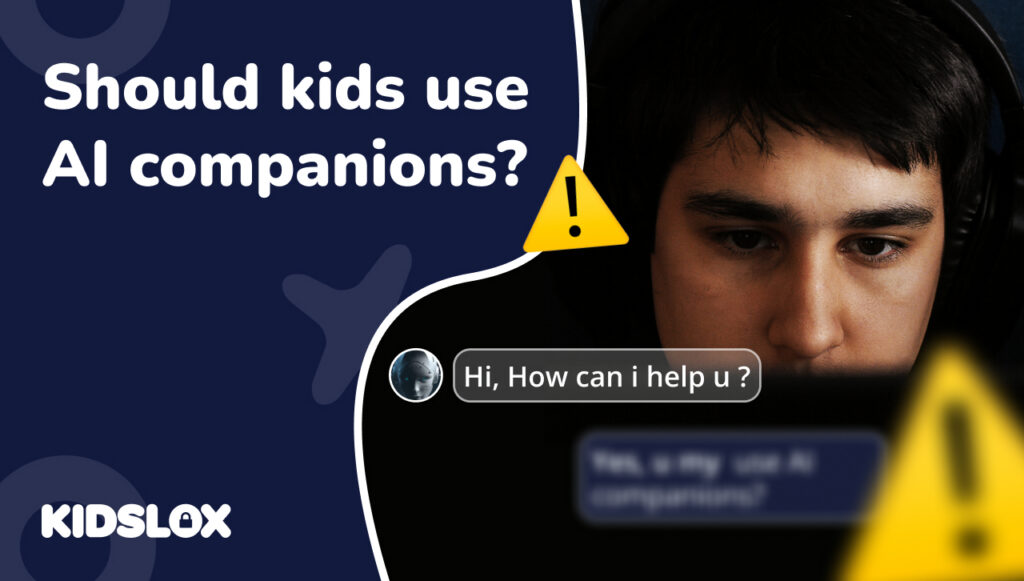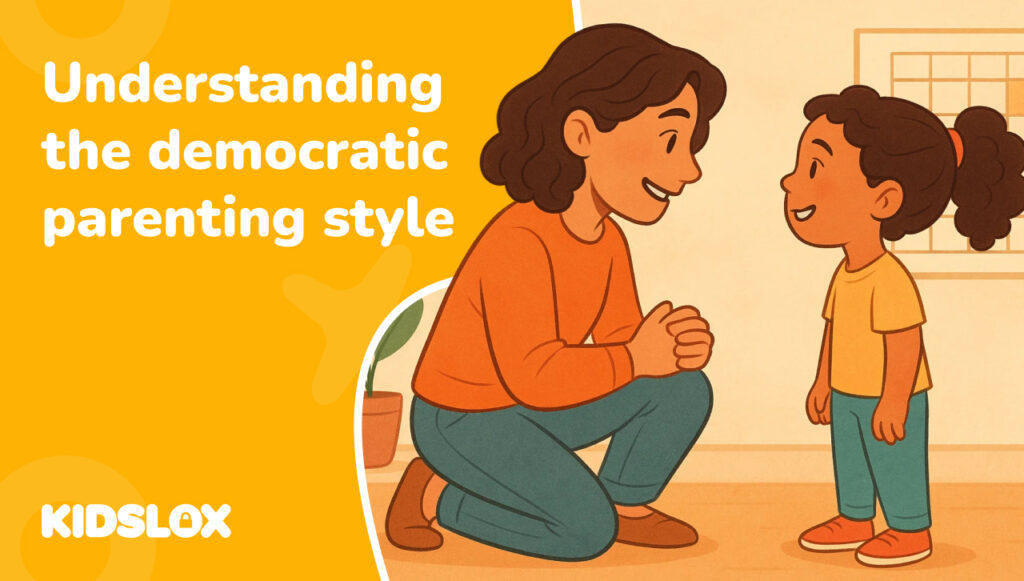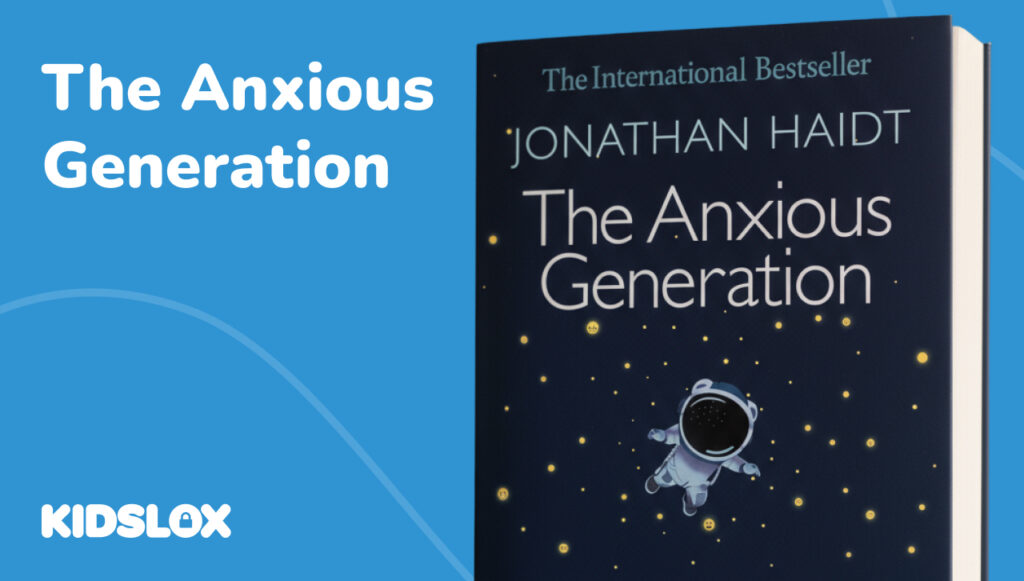What Every Parent Should Know About Virtual Friendships
AI has exploded in recent years. We now rely on it for everything from optimising our schedules, supporting us with customer service, offering personalised healthcare advice and even friendship.
In a world where it can seem impossible to keep up with technology and its developments, experts are warning of the dangers of allowing children access to AI, particularly for their social and emotional development.
In recent months, organizations like Unicef have shone a light on the increasing use of AI by children, and what it means for their wellbeing and safety. Within this Guide To, we’ll look at the rise of the AI companion, how kids are interacting with this new technology, and as parents, how we can support and guide them with this emerging digital landscape.
What is an AI Companion?
In simple terms, an AI companion is a virtual friend powered by artificial intelligence. These programs or apps can have text or voice conversations, offer emotional support, tell jokes, remember past chats, and even “learn” how to respond based on user behavior. Some even take on human-like personalities, with names, backstories, and virtual avatars.
You might have heard of popular ones like:
- Replika – a chatbot that acts as a friend, partner, or mentor
- Character.ai – lets users talk to fictional characters or AI-generated personalities
- My AI on Snapchat – built into the app, designed to answer questions or chat casually
There are even newer, more personalized versions marketed as the best AI companions for mental wellness, productivity, or even romantic (and sexual) support. While some of these tools can sound like harmless entertainment; or even helpful for lonely or anxious kids, they come with some serious watch-outs, especially for younger users.
Why Is The Topic of Virtual Companionship Trending Right Now?
AI has exploded into everyday life over the past few years. From the popular ChatGPT to deepfake filters, it’s everywhere and kids, who are often early adopters of what’s new online are clued-up and curious.
This, coupled with the fact that:
- Kids are spending more time online than ever
- Many experience loneliness, social anxiety, or mental health struggles
- Parents are busier than ever trying to juggle screens, schedules, and school
Apps are also increasingly gamified and beautifully designed, making them ultra appealing to tweens and teens who might prefer chatting with an AI companion over dealing with awkward real-life interactions.
And, as these platforms develop and launch rapidly, they’re not regulated and could be exposing children to a world of online danger, bad advice and content that isn’t appropriate for their age.
What Are The Hidden Dangers of AI Companions for Kids?
While AI companions may offer a sense of comfort or fun, they can present serious risks when it comes to children and teenagers.
Here are the big ones:
1. Emotional Dependency and Disconnection
Kids and teens are still learning how to build relationships, understand emotions, and navigate the ups and downs of real-life friendships. When they turn to an AI companion for constant validation or emotional support, it can blur the lines between healthy interaction and emotional isolation.
Some children may:
- Begin to depend on AI to regulate emotions rather than learning to cope or communicate with real people
- Prefer AI conversations over real social interactions
- Feel misunderstood in real life and retreat further into digital worlds
2. Privacy and Data Collection
Many of the best AI companions require sign-ups, personal data, and permissions. Even if they claim to be safe, in this unregulated sphere, it’s impossible to know what’s being done with your child’s information.
Questions to ask:
- Is the AI storing past conversations?
- Are responses being used to train the algorithm?
- What kind of data is being collected about my child’s behavior?
In most cases, these answers are buried deep in Terms of Service agreements that kids (and let’s be honest, most adults) never read.
3. Inappropriate or Unfiltered Content
While AI may be constantly evolving to understand context and dangerous topics, many AI companions are not designed with children in mind. There have been numerous reports of chatbots engaging in:
- Age-inappropriate discussions
- Roleplaying scenarios
- Suggestive or explicit content
Some platforms try to block this, but kids are smart (and so are the algorithms!). It’s often easy for them to manipulate the AI into talking about taboo topics.
This is especially worrying when you consider that virtual companionship can feel deeply personal to kids, even if the other “person” isn’t real.
4. Confusion Between Real and Fake Relationships
AI companions are incredibly good at mirroring emotions and making users feel “seen” and “understood.” The language they use is often personal and warm and can lead a child into believing that the technology shares an interest or affection for them.
But for children who are still emotionally and cognitively developing, the distinction between technology and real life connection can be difficult to understand.
Not understanding the limits of AI’s sentience could cause children emotional confusion, heartbreak, or unrealistic expectations in real-world relationships.
5. False Sense of Safety
If you have a child who struggles socially, you might assume that an AI companion is a “safe” alternative to social media, strangers, or toxic peer groups, but there are dangers:
- Some apps have chat features where kids can unknowingly connect with real users
- Others might allow third-party developers to create bots that aren’t well-moderated
- Many platforms have in-app purchases or hidden features that open the door to more complex, and, potentially unsafe content
6. Loss of Critical Thinking Skills
Worse still, experts are now warning that AI might actually be changing our brains. With a tool on hand to answer questions, generate responses and delve into any topic we can think of, a load is taken off our brains, and not in a good way. A study by MIT revealed that users of ChatGPT were lazier in their written responses and over-reliant on the technologies ability to generate work on their behalf.
This has worrying implications for children and teens, whose developing brains rely on different types of cognitive input to allow them to flourish as adults.
How Can We Protect Our Kids Using AI for Friendship?
If you are concerned that your child might fall foul to AI companionship, or are simply researching the latest in digital parenting and online literacy, here’s a quick checklist for parents who want to stay on top of their child’s exposure to AI companions:
Know what they’re using
Ask your child what apps or AI chatbots they’ve interacted with. Don’t assume you’ll recognize the name as some are embedded in games, social platforms, or even productivity tools.
Try it yourself
Create your own account and test the app. What kind of conversations are possible? What kind of avatar options or in-app purchases are there? This helps you assess if it’s age-appropriate.
Review the privacy settings
Can you delete conversations? Is there a “kid-safe” mode? Who has access to the data?
Talk to your kids about virtual companionship
Help them understand that while AI might feel comforting, it isn’t a replacement for real friends, family, or trusted adults.
Use parental controls
Apps like Kidslox let you block specific apps, set screen time limits, and monitor usage so you know what your child is engaging with online.
The Big Picture: Balance, Not Fear
Whether we like it or not, AI is here to stay. And, like all technological advancements, we’re not quite sure of how things will develop and what the dangers will be. As we all navigate this new emerging world, there are some excellent AI-powered tools that help us all develop new skills, boost our productivity, take control of our health and wellbeing, and more.
The key take-out for parents is to guide kids to use AI as a tool, not a crutch.
As parents, we don’t need to panic, we just need to stay informed, stay curious, and involved.
Not all AI companions are bad, and not all kids are at risk. But the combination of powerful emotional AI and a still-developing child’s mind is one that deserves a closer look.
If your child is already exploring virtual companionship, don’t shut them down, invite them into a conversation about it.
Ask:
“What do you like about the app?”
“How does it make you feel?”
“Do you think it’s a real friend?”
When kids feel heard and understood, they’re far more likely to listen and open up.
Digital literacy is a skill that we must all add to our parenting toolbox and with the rise of AI, we now have another chapter to add to the ever evolving landscape of digital technology.






